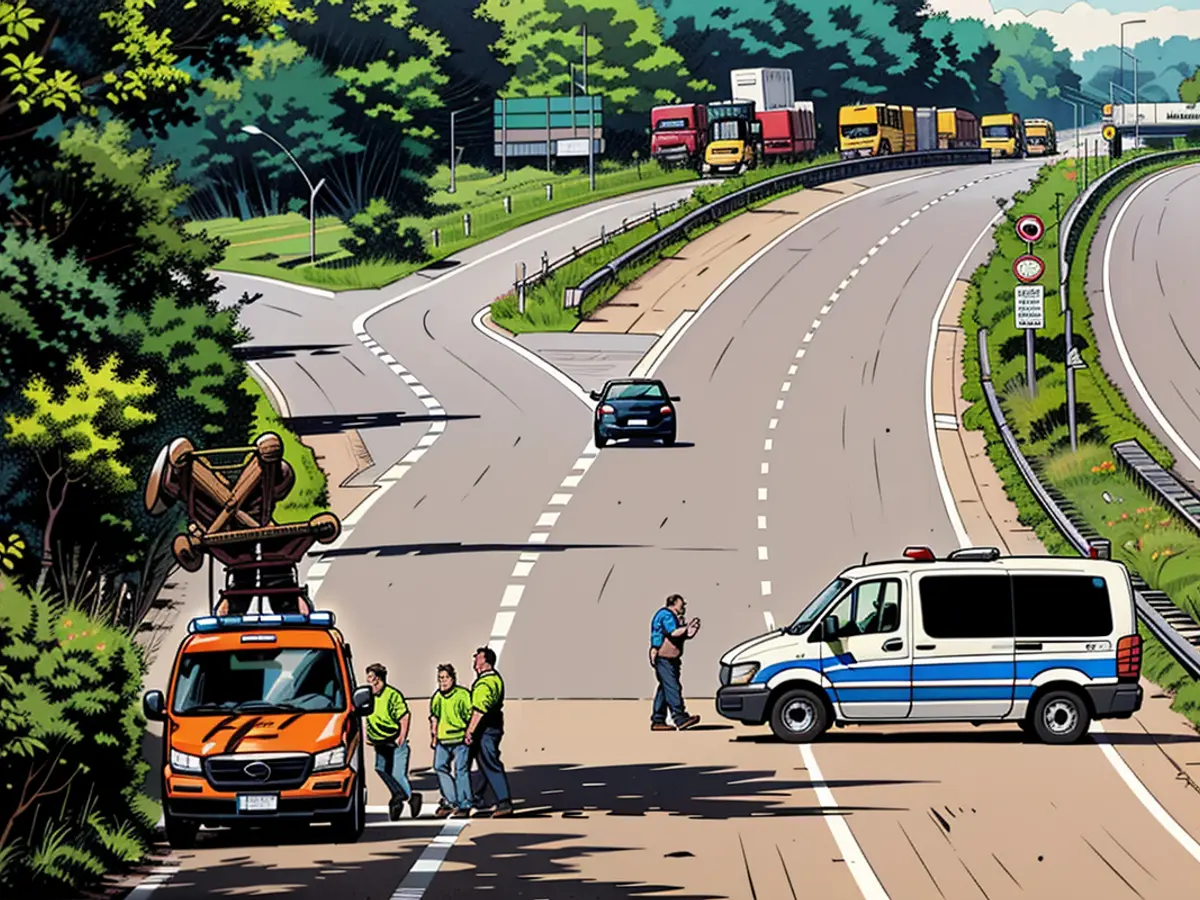Title: Eco-Protest Causes Bremen Highway Closure, Sparks Controversy Over Judicial Decisions
The Bremen junction on A27 highway experienced a temporary shutdown for approximately an hour due to an eco-protest, leading to a six-kilometer traffic jam. Activists scaled a bridge over the A27, hung banners, and disrupted traffic at noon, causing a significant impact on commuters.
Despite the initial plan to abseil directly onto a bridge with ongoing traffic, authorities banned the activity due to safety concerns. Permitting a demonstration on the bridge instead, the activists took their case to the Stade Administrative Court for a one-hour highway closure. However, the Lower Saxony Higher Administrative Court (OVG) later appealed the decision, reducing the closure to half an hour.
The OVG noted that the closure posed unnecessary risks to road users and residents, outweighing the right to freedom of assembly. Nevertheless, they were bound to the specific application of the case at hand.
The activists claimed this event was a response to an upcoming verdict at the Achim local court regarding a similar action on the A27 during the 2021 transport ministers' conference. The Bremen branch of the German Police Union (DPolG) strongly criticized the court decision, considering it reckless to prioritize freedom of assembly over the safety and lives of others.
Relevance of Legal Framework
In Germany, protests are protected by the constitution, and they must adhere to a legal framework that balances public safety, infrastructure, and the right to free assembly. The German Highway Act (Fernstraßengesetz) and the Public Order Act (Ordnungswidrigkeitsgesetz) are examples of regulations governing how protests affect public infrastructure such as highways.
Disparate Public Reactions
Environmental protests in Germany often receive significant attention from the public and can spark intense debates. The polarizing nature of such protests can be seen in recent demonstrations against stricter immigration policies and potential collaboration with the far-right AfD.
In the case of the A27 highway in Bremen, public reactions are likely to vary, reflecting both support for the environmental cause and concerns over the impact of highway disruptions.
Acknowledging the Instability
The success of eco-protests in demanding change is undeniable. However, these protests often involve significant disruptions, like highway closures. The controversy surrounding these protests highlights the need for balanced decision-making that considers both the right to freedom of assembly and public safety.
Looking Back and Ahead
As the Achim local court prepares to render a verdict on the activists' case, the focus remains on the importance of striking a balance between public safety and freedom of assembly. The upcoming ruling is likely to shape the future of environmental protests on German highways and spark further debate among policymakers and the public.
Additional Reading
[1] Governing Public Protest in Germany, European Constitutional Law Review 17, no. 3 (2021): 585-601. [3] German Elections 2021: Party Platforms & Political Landscape, International Institute for Democracy and Electoral Assistance (IDEA), 2021.





